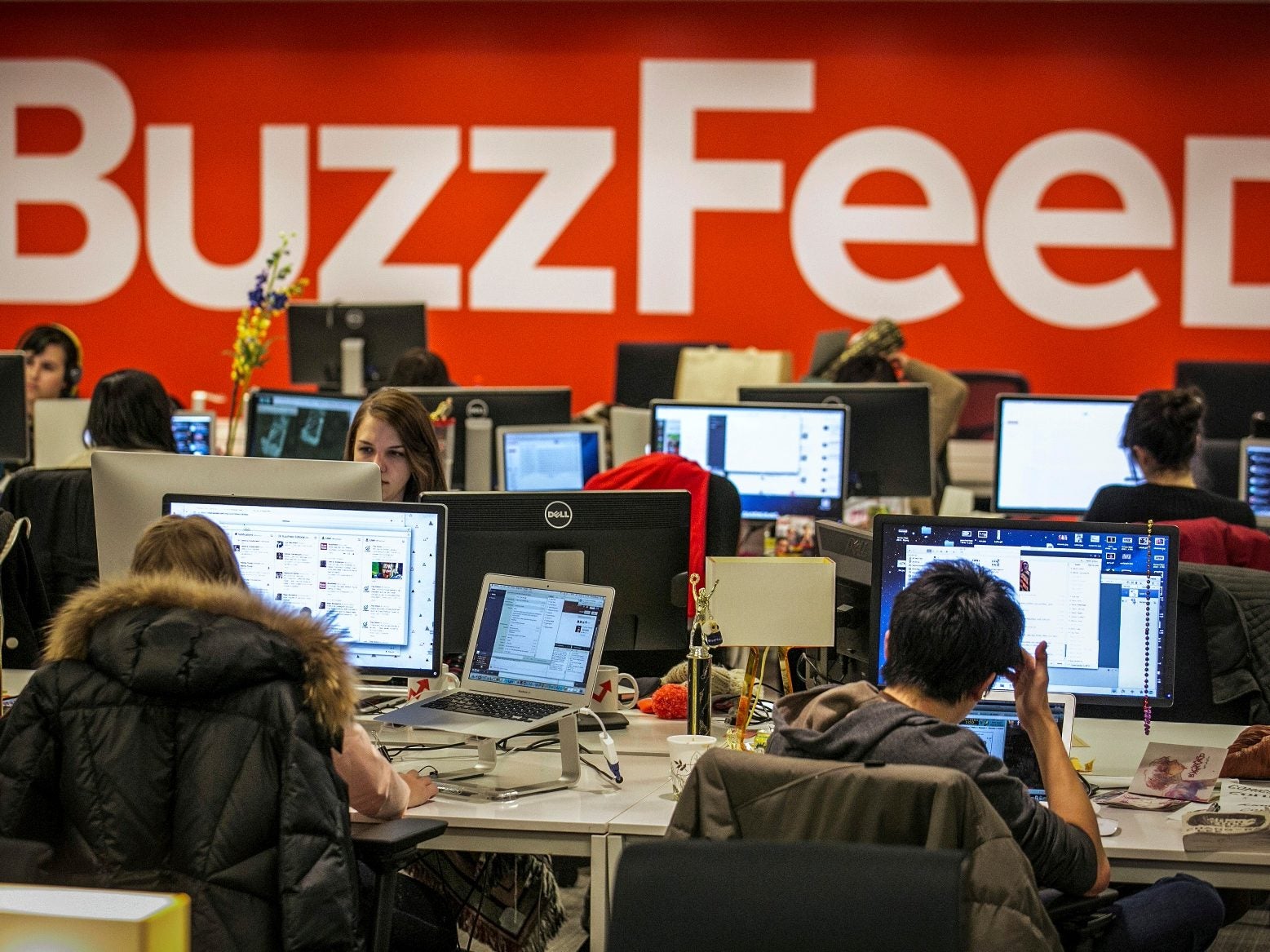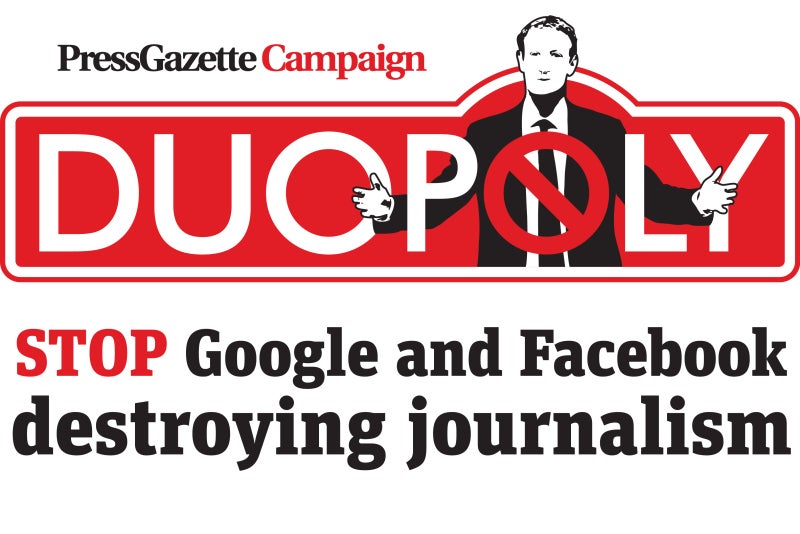
If free, extremely popular websites like Buzzfeed are struggling in the digital ecosystem which Google and Facebook dominate – than the Duopoly issue is far bigger than I feared.
And for their own sakes, as well as that of the journalism industry, they need to urgently look at reforming the way they operate.
By way of a quick recap, somewhere in excess of 60 per cent of the £10bn a year spent on digital advertising in the UK goes to Facebook and Google. The overall market is growing fast, but most of the new money (80 per cent plus) is going to the Duopoly.
Google makes most its money out of search (£5bn plus a year in the UK) and Facebook makes its revenue from display advertising. Both are outgunning journalism companies because they offer highly targeted ads at a fraction of the cost that someone who has to employ journalists can.
Press Gazette launched our Duopoly campaign highlighting concerns about the dominance of these two platforms largely because of the effect they were having on local journalism.
This threat was illustrated by Press Gazette’s story about job cuts at Archant yesterday. As the Eastern Daily Press publisher put it in a presentation to investors, local newspaper titles can’t compete with the “Persuasion Technology Lab”. It has axed 11 per cent of its workforce over the last year and other local press publishers have made similar cuts.
It had been thought that Buzzfeed’s native advertising model made it more resilient. By selling adverts which are embedded in editorial (albeit flagged up as sponsored) Buzzfeed should have been insulated from the pressure on display advertising.
But even Buzzfeed is feeling the pinch.
It only has an editorial staff in the UK of around 40 targeting a mass audience of hard-to-reach millennials. Yet the numbers do not appear to be adding up and 20 staff across editorial and commercial are set to go.
Advertising has subsidised journalism for centuries. If we are heading to a future where even huge brands like Buzzfeed can’t afford to employ journalists based on advertising revenue then readers will be the losers.
On Tuesday night, I chaired a debate at City University asking whether journalists let down the residents of Grenfell Tower. There was some powerful testimony from local residents and MP Emma Dent Coad was due to attend (but in the end got held up at Parliament).
One of the attendees told of a friend who wanted to cover the event for a national newspaper website, but was told by his editor that there were no hits in Grenfell Tower stories any more. To use modern parlance, it is no longer ‘trending’.
Facebook and Google would be very much less interesting places for their users to spend time without professionally-produced journalism on the platforms.
The redundancies at Archant and Buzzfeed are a consequence of the pressure on advertising caused by the domination and success of these two platforms. The anecdote about the Grenfell event illustrates the extent to which stories are going uncovered online unless they can attract stupendous amounts of traffic for a minimum amount of effort.
Mail Online appears to be prospering perhaps because as the largest newspaper website in the world it has the scale required to compete with the Duopoly. But many other publishers are struggling.
I would argue it is in the best interests of the Duopoly and of us all to urgently find ways to share more of the revenue they make from content with the originators, and to incentivise quality journalism on a diverse array of subjects.

Email pged@pressgazette.co.uk to point out mistakes, provide story tips or send in a letter for publication on our "Letters Page" blog

